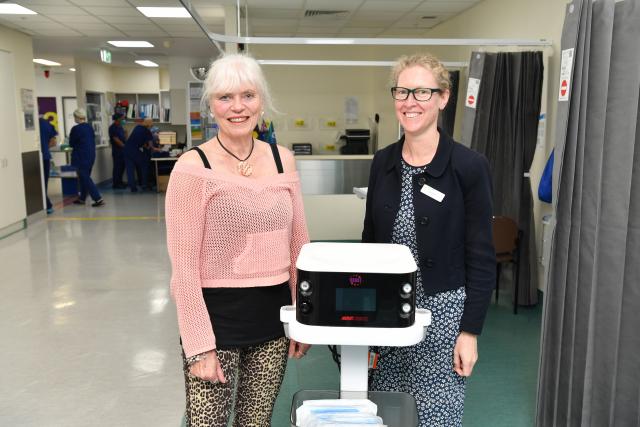Star Weekly is looking back at the best stories of last year and this is one of them.
October 24
Women living in Melbourne’s western suburbs now have access to a new, ‘game-changing’ surgical technique used in the treatment of breast cancer.
Earlier this month, Kathleen Carlisle became the first Victorian in the public healthcare system to benefit from a new radar localisation technology used in breast cancer surgery.
Called SCOUT, the new technology allows surgeons to operate with unprecedented precision, resulting in more successful surgeries, optimising breast conservation strategies and enhancing outcomes for women.
Kathleen, 70, retired dancer and gym instructor, underwent breast cancer surgery at Sunshine Hospital on October 6, using the new technique.
“When I heard about this new technology from my surgeon I jumped at the chance,” she said.
“The old way of doing things sounded really uncomfortable and I’m so grateful to Western Health and my surgical team at Sunshine Hospital for giving me the chance to try this new procedure”.
The traditional method of locating a tumour in breast cancer surgery is for a radiologist to insert a wire into the tumour on the morning of breast cancer surgery, with the surgeon then using the wire to locate and remove the tumour. For the patient, this effectively means two procedures in one day and sometimes an uncomfortable and stressful overnight stay.
Kathleen’s surgeon, Dr Sophie Nightingale, described the new technology as “game-changing”.
“This technology is amazing. It’s much less invasive, and less stressful for patients,” she said.
“It allows us to be more accurate, and patients lose less breast tissue during their surgery compared to the wire method.”
The SCOUT Reflector can be implanted ahead of the day of surgery and allows real-time radar detection of the location of the tumour with millimetre accuracy.
The technology works by implanting a small “reflector”, the size of a grain of rice, into the breast tissue. This can be done days or weeks before surgery and can potentially be combined with a breast tissue biopsy, to further reduce the number of procedures for a patient.
Western Health acting head of surgery Dr Bernard Allard said the team is excited to have the technology at Sunshine Hospital.








